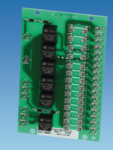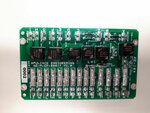I have been trying to establish if the PS276 (Powershot P0120) 20 amp charger fitted to our 2011 Pegasus Genoa is functioning correctly. I have listed below the information I have gathered by testing and would appreciate any thoughts :-
1) At first it was thought to be the battery and this was replaced with a YUasa 110 ah Leisure battery
2) Testing the system with the new battery (measured at 12.6 volts} on hook up with all 12 volt appliances on - van voltmeter ran at 13.45 volts and after about 25 minutes the charger cooling fan was heard to come on. Based on this I thought the charger must be working okay but.........
3) Next time out voltmeter shows 12.7 v without EHU and increased to 13.75 v when plugged in to the 240 volts . The 13.75 v on the van voltmeter remained fairly constant for about 24 hours irrespective of the 12 volt usage. However after 24 hours the voltmeter had reduced to 13v and maybe a day later 12.75 ( both still on EHU) . This seemed to suggest that the charger was not working ?. After a while I decided to switch off at the RCD and then back on - this immediately resulted in the voltmeter increasing to the 13.75 volts . I do not know if these chargers have voltage sensors that switch the charger on and off ( relays?) but wonder whether there is a fault in another part of the consumer unit that is resulting inconsistent operation
1) At first it was thought to be the battery and this was replaced with a YUasa 110 ah Leisure battery
2) Testing the system with the new battery (measured at 12.6 volts} on hook up with all 12 volt appliances on - van voltmeter ran at 13.45 volts and after about 25 minutes the charger cooling fan was heard to come on. Based on this I thought the charger must be working okay but.........
3) Next time out voltmeter shows 12.7 v without EHU and increased to 13.75 v when plugged in to the 240 volts . The 13.75 v on the van voltmeter remained fairly constant for about 24 hours irrespective of the 12 volt usage. However after 24 hours the voltmeter had reduced to 13v and maybe a day later 12.75 ( both still on EHU) . This seemed to suggest that the charger was not working ?. After a while I decided to switch off at the RCD and then back on - this immediately resulted in the voltmeter increasing to the 13.75 volts . I do not know if these chargers have voltage sensors that switch the charger on and off ( relays?) but wonder whether there is a fault in another part of the consumer unit that is resulting inconsistent operation



